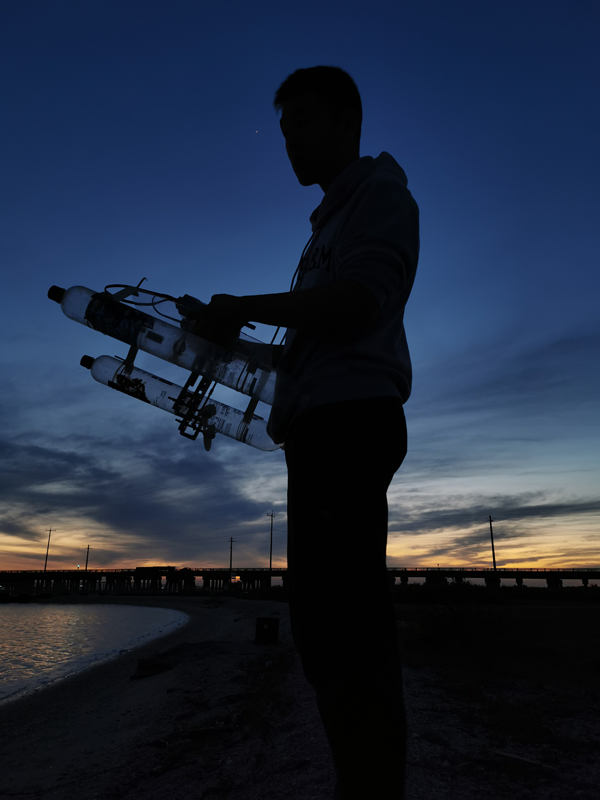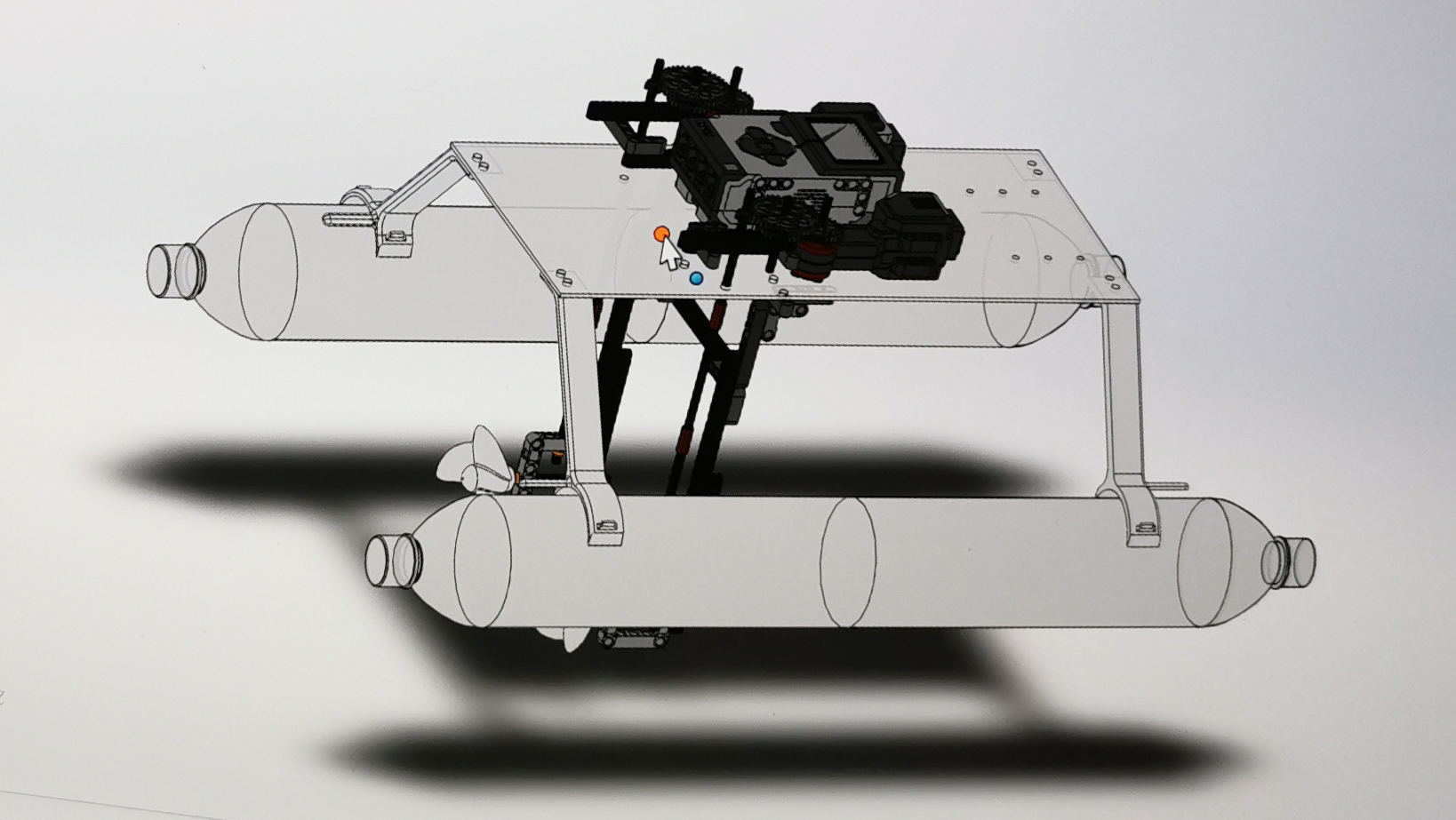Interdisciplinary collaboration spurs innovation – bridging different perspectives and expertise to produce the best possible product. To celebrate this union of ideas, Engineering Academic and Student Affairs and the Department of Ocean Engineering launched the inaugural Educating Smart Marine Aggies Robotic Technologies (eSMART) competition in spring 2020.
This new semester-long competition in Galveston challenged student teams to put their innovation, creativity and communication skills to the test to create, race and present a remote-controlled water vehicle capable of racing around a floating marker and returning to shore. It was headed by Dr. Paul Mario Koola, ocean engineering professor of practice and assistant director of the first-year engineering program in Galveston, and Dr. Jay Porter, professor and associate dean for engineering at Texas A&M’s Galveston campus. Dr. Sharath Girimaji, ocean engineering department head, also played a pivotal role in the creation of the program, which was inspired by previous student competitions held in Galveston.
“Learning in engineering happens best when one is self-motivated,” said Koola. “eSMART enabled students to play with ideas to produce designs that, when built and tested, taught them something that cannot be gained by just reading books and taking exams.”

Taking advantage of the waterfront location on the Galveston campus, the competition was designed to take to the water using a small section of the shoreline to have the student-made water crafts battle waves and currents on their way around a floating marker.
“The ocean engineering department is on two campuses, one at College Station and one at Galveston,” said Koola. “The Galveston campus provides tremendous learning opportunities for students being in close proximity to the ocean. eSMART is a means to give students a first-hand opportunity to develop technologies related to the oceans and determine their interest in pursuing a career in this field.”
As Porter expressed proudly, while the kickoff competition was disrupted and transitioned online due to COVID-19, students from across all departments rose to the challenge to compete virtually for the monetary prizes.
“eSMART was intentionally designed right from the start to provide an experience like no other for our Galveston students taking advantage of this unique location,” said Koola. “This year we could not get wet, but the student spirit is so strong I believe we will come back much stronger in the coming years. The first-place team even shared their design, asking us to ‘please give this to the next batch’ with the hope the next batch will take this competition to an even higher level. This makes me truly proud of this batch of students who understand how humanity has progressed, by building off on the knowledge generated by those who went before us.”
Taking home first place in the inaugural challenge was a team comprised of, at the time of the competition, general engineering sophomore Rong Xu, general engineering freshman Saini Ye, general engineering sophomore Jiaze Cai, general engineering sophomore Jiawei Zhang, general engineering sophomore Yuezhou Kang, ocean engineering senior Skylar Bayman and oceanography graduate student Chenxi Ma.

“My main takeaways from this competition were leadership and friendship,” said Xu. “Through eSMART, I learned how to make a schedule for the whole process, how to make appointments for meetings, how to make sure every member was available and how to be efficient as a team. Additionally, I made friends who have the same interest as me from other teams through eSMART that I might have classes with or solve problems with in the future.”
Xu also explained that, as a general engineering student, eSMART also provided him an opportunity to both apply his knowledge to a physical experiment and to experience how to work within a team dynamic on an engineering project. As such, he learned how important it was to trust his teammates, consider other perspectives, and find and apply everyone’s strengths. For example, Xu took the lead on coding for his team.
The second-place team consisted of then general engineering sophomore Botong Deng, computer science undergraduate Linjian “Leo” Yang and general engineering sophomore Wenhui Li. The third-place team included ocean engineering junior Michael Alan Thiel II, general engineering sophomore Robin Henriquez, marine engineering technology junior Seth Andres and general engineering freshman SriramKumar Krishna Kumar.
Despite the changing tides caused by the COVID-19 pandemic in the spring, the leaders of the eSMART program are hopeful in its future and are excited to bring together students on campus once more when it is safe. Like a celebratory reunion, they are looking forward to the future of interdisciplinary innovation.
“The excitement of this first batch of eSMARTies, as I call them, is what drives us to provide our students with opportunities that are unique to the Galveston campus – a time in their life they will remember forever,” said Koola. “As long as Dr. Porter is here to back us, eSMART will live on.”